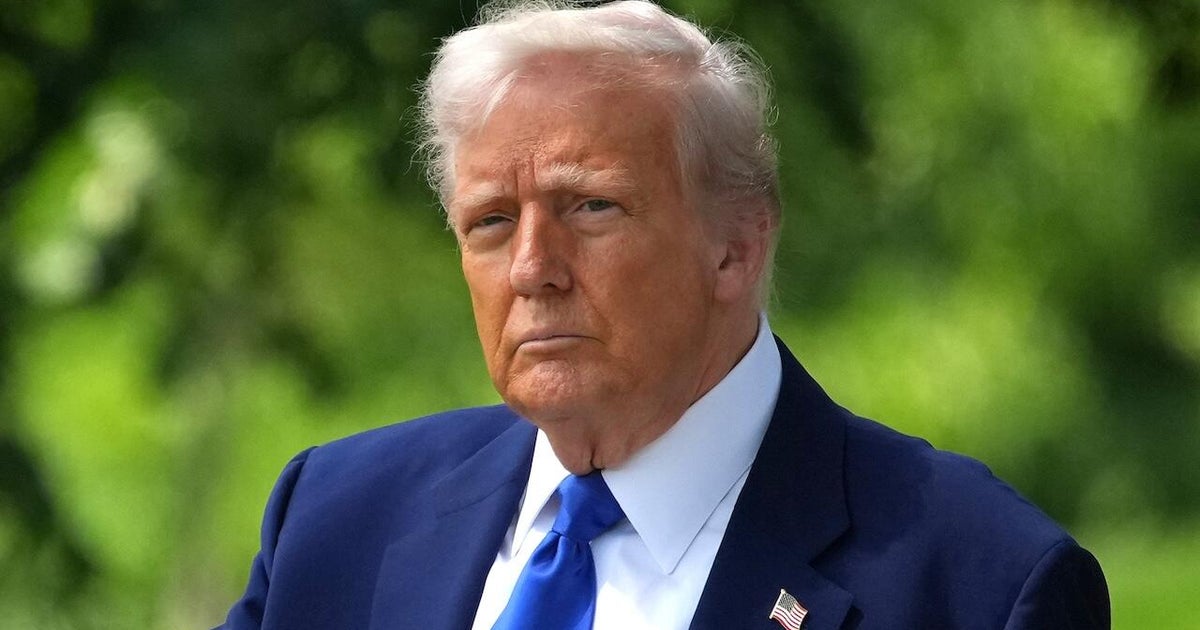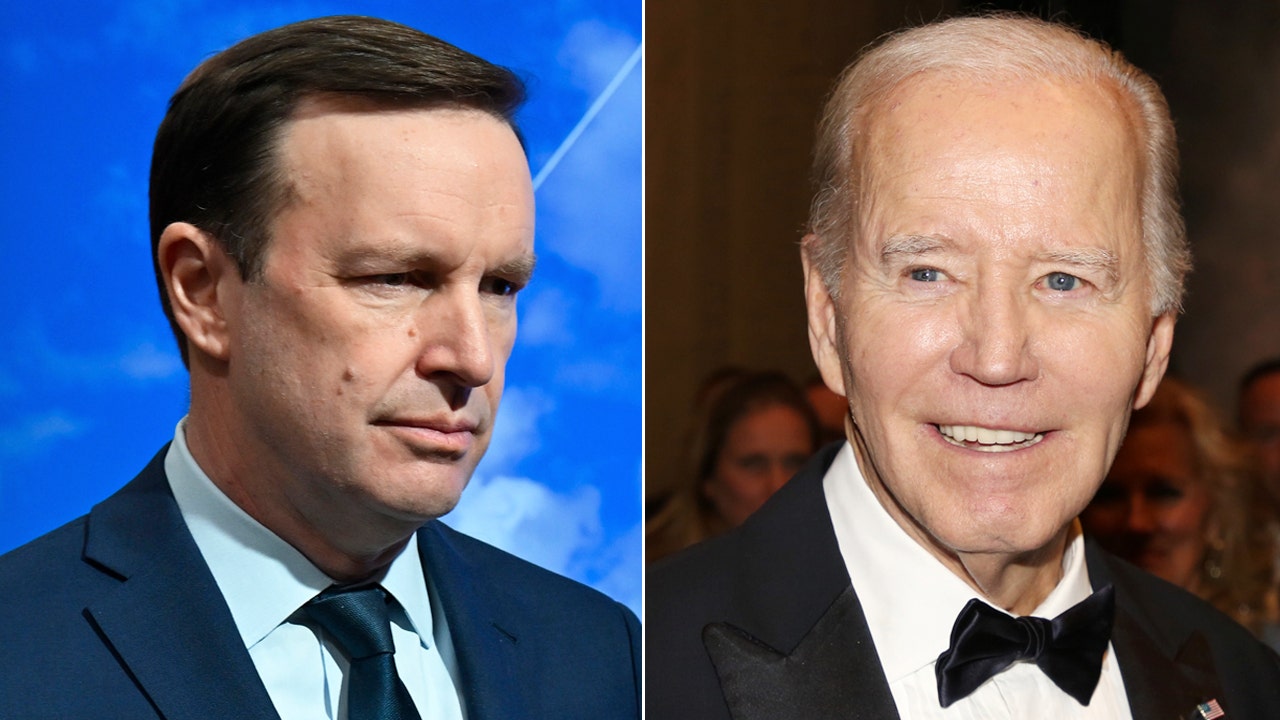Washington — The Supreme Court on Thursday is set to consider a bid by the Trump administration to narrow three lower court orders blocking President Trump from ending birthright citizenship, in cases that test judges’ power to block a president’s policies nationwide.
The arguments before the court, taking place in a rare May session, will be the first involving a policy rolled out by Mr. Trump in his second term. But the high court is not examining the legality of the president’s birthright citizenship executive order, which seeks to deny U.S. citizenship to children born to a mother or father who are in the U.S. unlawfully or on a temporary basis.
Instead, the Trump administration has said district court judges overseeing three legal challenges to Mr. Trump’s policy lacked the authority to issue sweeping injunctions that extend beyond the parties involved in the litigation. The plaintiffs that brought the three lawsuits are 22 states, two organizations and seven individuals, and the Justice Department is pushing for the injunctions to apply only to them.
A decision from the Supreme Court in favor of the administration could allow it to partially enforce the birthright citizenship measure while the litigation proceeds — but not enforce it against the plaintiffs, including residents of California, New York and 20 other states.
“This is one of a range of efforts to close the courthouse doors, to make it harder, more expensive, more complicated, slower to challenge illegal government action,” said Cody Wofsy, deputy director of the Immigrants’ Rights Project at the American Civil Liberties Union. “A case like birthright citizenship puts that in really stark relief where you have an executive order that is blatantly illegal, but the administration is asking the Supreme Court to make it harder for courts to protect people and vindicate constitutional rights.”
The fight over nationwide, or universal, injunctions has been simmering for years, and several of the justices themselves have indicated that the Supreme Court would have to clarify their legality.
“Universal injunctions are legally and historically dubious,” Justice Clarence Thomas wrote in a concurring opinion to the Supreme Court’s 2018 decision upholding the travel ban Mr. Trump put in place during his first term. “If federal courts continue to issue them, this court is dutybound to adjudicate their authority to do so.”
But criticisms of these broad orders reached a fever pitch this year, as the Trump administration fends off more than 200 legal challenges targeting nearly every aspect of the president’s second-term agenda, and courts around the country issue injunctions that stop his policies from taking effect.
Most of these decisions have been appealed, and the Trump administration has sought emergency relief from the Supreme Court in more than a dozen cases, including over his birthright citizenship executive order. The high court left the lower court injunctions preventing implementation of the birthright citizenship policy in place for now.
Among the president’s other plans that have been blocked were his transgender military ban, which the Supreme Court then allowed to take effect; his effort to restrict federal funding to medical institutions that provide gender-affirming care for young people; and cuts to certain federal funds.
“The pace of universal injunctions has gotten to the point where it really is an urgent issue for the court to resolve, not just because it has meant the thwarting of the president’s ability to implement the policies for which he was elected, but also because it has led to an inundation of emergency petitions to the Supreme Court as a result of these universal injunctions,” said Joel Alicea, a law professor at the Catholic University of America.
These sweeping orders have frustrated not just Mr. Trump and his agenda, but also his predecessors. A study from the Harvard Law Review published in April 2024 found that at least 127 nationwide injunctions were issued from 1963 through 2023, though most of those, 96, were entered from 2001 through 2023.
In March, the Congressional Research Service identified 86 nationwide injunctions that were issued under Mr. Trump’s first four years in office and 28 during former President Joe Biden’s term. But the report warned that it is “not possible to provide a single definitive count of nationwide injunctions.”
As to Mr. Trump’s second term, the Congressional Research Service identified 17 nationwide injunctions issued during his first two months back in office. The Trump administration estimates there have been at least 28 of these orders entered against it by judges.
“What universal injunction practice effectively means is that a single district court judge has a veto over the president’s national policy and because there are 94 district courts in the country, that means that you have 94 opportunities in theory to shut down any given national policy,” Alicea said. “That is a recipe for genuine paralysis in terms of national policy-making and in a way that subverts the separation of powers because single district court judges were never supposed to have this kind of authority to stop national policy in its tracks.”
Mr. Trump and his allies have attacked by name the judges issuing these decisions, and his administration has extended that battle to the relief they are granting. In a filing in one of the birthright citizenship cases, the Justice Department said universal injunctions have reached “epidemic” proportions since Mr. Trump returned to the White House in January.
“Those injunctions thwart the executive branch’s crucial policies on matters ranging from border security, to international relations, to national security, to military readiness,” Solicitor General D. John Sauer wrote. “They repeatedly disrupt the operations of the Executive Branch up to the Cabinet level.”
Republicans in Congress have also taken up the cause against universal injunctions. The GOP-controlled House in April passed a bill that would restrict district court judges from issuing broad injunctive relief. It’s unclear whether the measure will pass the Republican-led Senate, where 60 votes are needed for legislation to advance.
But Wofsy, of the ACLU, said the number of lawsuits and injunctions stems from the volume of executive actions taken by the president in the opening months of his second term.
“The administration has been subject to so many nationwide injunctions and injunctions more generally because it’s doing an incredible volume of illegal things, and that is not a reason to take away a tool that the judiciary has to check executive authority. It’s the opposite,” he said. “Now more than ever it is vital that the judiciary is a strong and robust check against illegal executive actions.”
The Supreme Court may not stop universal injunctions altogether but could curtail them, as there are instances where relief naturally extends beyond the parties involved in a case. Take, for example, a landowner who sues a factory for polluting a river. In that instance, an injunction that orders the factory to stop would benefit all who live along it, not just the single plaintiff.
“The basic principle here is courts may only issue injunctions that are as broad as necessary to remedy the plaintiff’s asserted harm,” Alicea said. “Sometimes that will require an injunction that gives protection even to nonparties as an incidental result of giving protection to the actual plaintiff.”
If the Supreme Court does curtail judges’ ability to enter universal injunctions, courts could still enter tailored relief. Plaintiffs seeking to represent a broader group of people could also file class-action lawsuits. In the context of the birthright citizenship case, a class-action lawsuit could be brought by affected pregnant women in the U.S. illegally and children at risk of losing their right to U.S. citizenship, the Trump administration has argued.
But Wofsy said class-action lawsuits, like nationwide injunctions, are one of many tools available to federal courts and may not be appropriate in every case.
“The existence of that tool doesn’t mean courts shouldn’t have other tools available,” he said. “The question here isn’t, ‘should nationwide injections be entered in every case?’ The question is, ‘are we going to take away the discretion that district courts have to use this as an appropriate tool to craft a remedy in a case where it’s necessary?’”
He said birthright citizenship is an example of a situation in which the constitutional question is so clear, there is no reason the government needs to apply the policy to a single child while the legal challenges move forward.
“Citizenship really cuts through so many aspects of our society. It matters for so many educational, health, nutrition, other kinds of programs,” Wofsy said. “The idea that we would have a patchwork system where people’s citizenship isn’t just a matter of whether you’re born in the United States, but who your parents are, what their status is, do you have documentation, are you a member of this organization, were you born in this state or that state invites confusion, chaos, discrimination and for no real purpose.”
Melissa Quinn
Melissa Quinn is a politics reporter for CBSNews.com. She has written for outlets including the Washington Examiner, Daily Signal and Alexandria Times. Melissa covers U.S. politics, with a focus on the Supreme Court and federal courts.






























